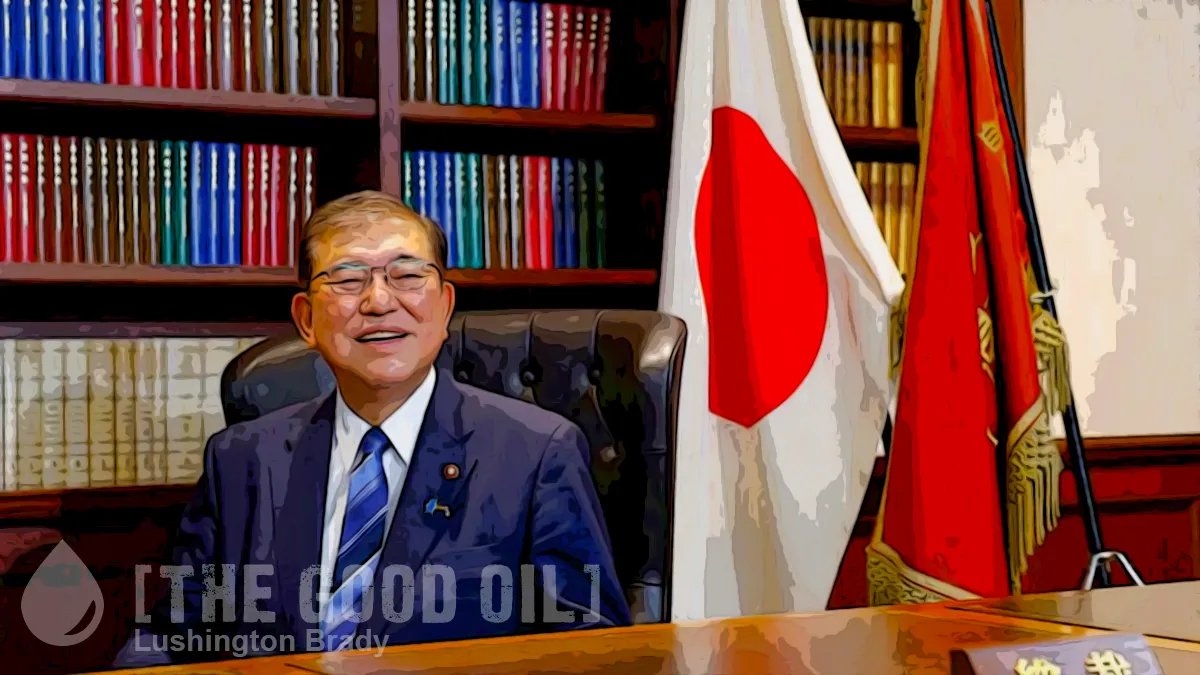Table of Contents
With all the hoopla over the US elections, it’s easy to forget that half of the world has had, or is going to have, elections this year and into next and, sometimes, unexpectedly. With yet another change of prime minister, Japan was thrown into a snap election last week.
It hasn’t worked out well for the incumbents.
Japanese Prime Minister Shigeru Ishiba vowed Monday to stay in office despite his gamble of snap elections backfiring, with his party’s ruling coalition falling short of a majority for the first time since 2009.
This is a very big deal. The Liberal Democrats (LDP) have governed Japan for all but a few years since 1955.
Ishiba called Sunday’s election days after taking office on October 1, but voters angry at a slush fund scandal punished [the LDP…]
The LDP won 191 seats, down from 259 at the last election in 2021, according to NHK’s tallies. Official results were yet to be published […]
According to projections by national broadcaster NHK and other media, the LDP and its junior coalition partner Komeito missed Ishiba’s stated goal of winning 233 seats – a majority in the 456-member lower house.
It seems likely at this point that the LDP will continue in minority government, with the opposition probably too divided to form a coalition to unseat the ruling party. It’s also questionable how long Ishiba’s tenure will be.
Shigeru Ishiba could well become infamous for being the shortest-lived prime minister in Japan’s history after four weeks of bumbling, fumbling and a string of policy flip-flops.
Former Prime Ministers Fumio Kishida and Yoshihide Suga mobilized their followers en masse to back Ishiba in the Liberal Democratic Party leadership election in late September, presumably because they thought Ishiba could be more easily manipulated than other candidates […]
That gave the opposition another rush of talking points and created terrible optics for the LDP in the final days of the campaign.
It would have been a tough election regardless, but the decisions made by Ishiba, Kishida, Suga and Koizumi turned what could have been a loss of seats but retention of a majority into an electoral disaster.
Another factor in the election setback for the LDP is the same voter malaise which saw widely disliked socialists like Anthony Albanese and Keir Starmer elected on just a fraction of the vote.
“As long as our own lives don’t improve, I think everyone has given up on the idea that we can expect anything from politicians,” restaurant worker Masakazu Ikeuchi, 44, told AFP on Monday in rainy Tokyo.
Voter turnout for single-seat constituencies in Sunday’s general election in Japan stood at 53.85%, the third lowest in post-World War II history, according to internal affairs ministry data.
The low turnout is another in a long decline in Japanese interest in voting.
The figure was down 2.08 percentage points from 55.93% in the previous election for the House of Representatives, the all-important lower chamber of parliament, in 2021. The postwar low of 52.66% was marked in the 2014 Lower House poll […]
Lower House voter turnout fell below 60% for the first time in the 1996 election after having continued to move above that mark since the end of the war.
Voter turnout recovered to 69.28% in the 2009 election, in which the now-defunct Democratic Party of Japan seized power from the LDP-Komeito pair, but stood below 60% again in the 2012, 2014, 2017 and 2021 elections.
At least Starmer and Ishiba can point to low voter turnout as an excuse for their historically low vote count – but in compulsory-voting Australia, what’s Anthony Albanese’s excuse?









